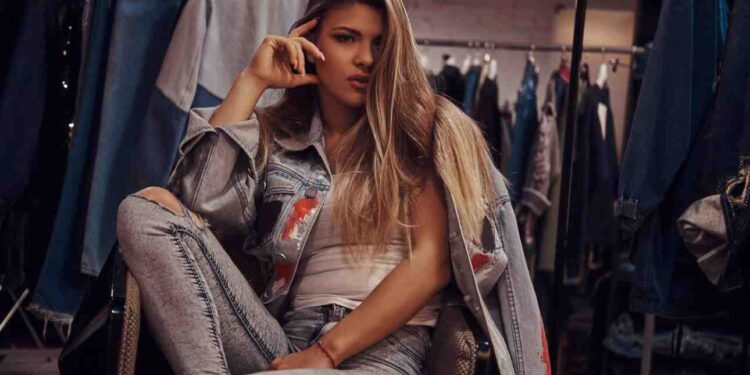It’s no secret that celebrity fashion lines have become a staple in today’s pop culture and business landscape. From Rihanna’s Fenty to Kanye’s Yeezy, from Kim Kardashian’s SKIMS to Jessica Simpson’s billion-dollar brand, celebrities are taking their star power beyond the red carpet and into our closets. But as the number of these brands grows, so does the debate: Are celebrity fashion lines exploiting fans, or are they just a smart business move? Let’s unpack that question with an open mind and a keen eye.
What Are Celebrity Fashion Lines?
Celebrity fashion lines refer to clothing or accessory brands either founded, endorsed, or heavily promoted by celebrities. These aren’t just one-off collaborations anymore. Today, celebrity fashion lines are full-fledged brands with global distribution, massive marketing machines, and legions of devoted customers. They often capitalize on a celebrity’s personal style, image, or lifestyle, translating that into products fans can purchase.
This approach can make fashion feel accessible. For a fan, owning a piece of a celebrity’s fashion line might feel like a way to connect with them or emulate their success. But is that emotional connection being manipulated?
The Emotional Economy Behind Celebrity Fashion
We live in an era where attention is currency, and celebrities are the reigning titans of influence. When a celebrity launches a brand, they’re not just selling clothes—they’re selling identity, aspiration, and access. This emotional economy is powerful. It turns passive fans into loyal consumers, eager to support their favorite stars through their wallets.
On the surface, this seems harmless. But dig deeper, and a complicated question emerges: are celebrity fashion lines designed to empower fans, or to profit from their emotional investment?
For example, some celebrities release fashion lines at high-end prices, targeting fans who might not realistically be able to afford the items. The result? Some fans overspend, others feel left out, and still, others buy knock-offs to feel included.
Smart Business: Leveraging a Personal Brand
Let’s not ignore the business brilliance behind celebrity fashion lines. Celebrities come with built-in audiences. Their Instagram posts double as marketing campaigns, and their lifestyle is the product. In an age where customer acquisition costs are sky-high, having millions of followers ready to buy is a massive advantage.
Brands like SKIMS, Good American, and Fabletics have revolutionized how products are launched. Through limited drops, exclusivity, and storytelling, they create hype, urgency, and loyalty. From a purely strategic standpoint, celebrity fashion lines are smart business.
They create jobs, support manufacturers, and bring innovation into the market. Rihanna’s Fenty, for instance, disrupted the industry by pushing inclusivity in fashion and beauty. That’s not exploitation—that’s progress.
Are Celebrity Fashion Lines Overpromising?
The flip side is that some celebrity fashion lines fail to deliver. Poor quality, inflated prices, and lack of originality can plague these brands. There are stories of cheaply made items marked up because they carry a famous name. In some cases, it’s clear that the celebrity had minimal involvement, raising ethical questions about authenticity.
This leads us to a key issue: when celebrities exploit their fame without offering real value, the fan becomes a means to an end. The clothing isn’t about expression or empowerment—it’s about cashing in.
And that’s when the line blurs between admiration and manipulation.
The Demographics of Devotion
Who buys celebrity fashion lines? Often, it’s younger consumers, especially Gen Z and millennials, who idolize these public figures and crave a connection. These generations are deeply influenced by social media, where curated images and brand placements are hard to separate from reality.
That’s not inherently bad, but it becomes risky when these fans, some still teenagers, are encouraged to spend beyond their means to buy into an illusion. And let’s be honest—celebrity fashion lines can make that illusion seductive.
Ethical Considerations: What Responsibility Do Celebrities Have?
If celebrities are going to profit off their audience, do they bear a moral responsibility to ensure the quality, price, and messaging of their fashion lines align with their public values? Shouldn’t brands founded by billionaires offer affordable options? Shouldn’t those brands lead the way in ethical production and fair labor practices?
To be fair, some do. Emma Watson, for example, has been involved in sustainable fashion initiatives. Others, like Meghan Markle and Angelina Jolie, have emphasized ethical sourcing in their collections. When celebrity fashion lines align with a star’s values and deliver genuine quality, it can be a powerful force for good.
But when it’s all about profit, with little regard for the fan experience, it becomes exploitation, plain and simple.
Real Talk: What Fans Should Know

If you’re a fan considering buying from a celebrity fashion line, pause and ask:
- Is the item high-quality, or just hype?
- Is the price reflective of the value?
- Does the brand align with values that matter to you?
- Is this a purchase made out of admiration, or a need for identity?
Fans aren’t mindless consumers. Most are savvy and increasingly value transparency and authenticity. That means celebrity fashion lines that truly respect their audience have the best chance of long-term success.
Celebrity Fashion Lines That Got It Right
Let’s acknowledge the success stories. Rihanna’s Fenty didn’t just put her name on a label—she made inclusivity a brand value. Jessica Simpson quietly built a billion-dollar empire that catered to real, working women. Even Kanye West, for all his controversy, took bold design risks and reshaped streetwear norms.
These examples prove that celebrity fashion lines can be both emotionally engaging and smart business.
The Future of Celebrity Fashion Lines
As consumers get wiser and social consciousness rises, the future of celebrity fashion lines will depend on trust, quality, and transparency. Expect more calls for:
- Sustainable materials
- Ethical labor practices
- Inclusive sizing and pricing
- Clear celebrity involvement in the design process
In the coming years, celebrity fashion lines won’t just be judged by style—they’ll be judged by substance.
Conclusion
So, are celebrity fashion lines exploitation or smart business? The truth is, they can be either—or both. It depends on how the brand is built, what it delivers, and how it treats the consumer.
Smart business respects the customer. Exploitation manipulates them.
The next time you scroll past a celebrity promoting their latest collection, don’t just admire the style. Ask questions. Look deeper. And remember: real power lies not in celebrity influence, but in the choices you make with your wallet.


















k8hcuv
Alright, ggpanaloapp.info is the place to be for games . I spent hours download lots of game and easily get to play them all. I am happy with the amount of content they provide! Definitely worth checking out! ggpanaloapp
Your point of view caught my eye and was very interesting. Thanks. I have a question for you. https://www.binance.com/register?ref=IXBIAFVY
Can you be more specific about the content of your article? After reading it, I still have some doubts. Hope you can help me. https://accounts.binance.com/sk/register-person?ref=WKAGBF7Y
Fabet77online, another online casino. Lots to look at. What do you think? Give it a try here fabet77online
Just signed up to 955betcom. Website’s clean, and the registration was easy. Let’s see how it goes! Check them out: 955betcom
Okay gk88slot, let’s see. It’s got a slightly older feel to it, but sometimes that’s charming, right? Not gonna lie, the loading times were a tad slow. But once I got in, the games played alright. Maybe worth a look if you’re feeling nostalgic: gk88slot
Rummy with a twist! Rammy91 is a pretty fun take on the classic card game. I’ve been enjoying the tournaments and the different game modes. Give it a try: rami91
Hey folks! Just checked out 28betcasino, and gotta say, it’s got a decent selection of games. Navigation’s pretty smooth too. Maybe could use a few more bonuses, but overall a solid experience. Check it out for yourself: 28betcasino